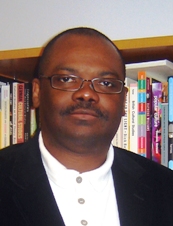Cultural Studies and the World of (Literacy) Research Methodology
 Participatory session by chair Handel Kashope Wright
Participatory session by chair Handel Kashope Wright
Cultural Studies ambivalent relationship with the disciplines is well known (variously cultural studies as multidisciplinary, anti-disciplinary, postdisciplinary and regarded by the disciplines as insufficiently disciplined, opportunistically derivative, a forward looking model for interdisciplinarity, etc.). What is curiously less well documented is cultural studies relationship to the comprehensive world of methodology, especially in relation to research paradigms, traditions and sub-traditions (Denzin & Lincoln, 2005). Cultural studies is supposed to be "methodologically open" (Saukko, 2003) which means in theory that researchers can subscribe to any paradigm, draw from anything from quantitative to qualitative and utilize any (sub)tradition. However, it is clear not only that cultural studies researchers work within the critical paradigm with some subscribing to the postmodern/poststructuralist or constructivist alternatives but almost never to postpositivism let alone positivism; that qualitative is much preferred over quantitative and interview studies and ethnography are distinctly preferred, taken for granted traditions (Gray, 2003; Willis, 2000). Many researchers simply draw on a home discipline for their research approaches (so that cultural studies researchers trained as sociologists and anthropologists do critical ethnographies and those from communications do critical discourse analysis, etc.). Drawing on a critical version of home discipline's preferred approaches makes for safe, efficacious but not necessarily particularly innovative forms of research and this is rather ironic since the cultural studies turn has introduced qualitative approaches in previously virtually exclusively quantitative fields such as sport psychology, contributing in the process to the production of exciting new work and directions in such fields (Ryba & Wright, 2005). In this session, we will have an open and hopefully far ranging discussion on the relationship between cultural studies and methodology, tackling questions such as what to do about numbers (as Tomaselli and Mboti (2011) ask in keynote for this Institute) or by extension, whether to continue to eschew quantitative methods, positivism and postpositivism and what it might mean, alternatively, to engage them; what literacy of the world of new media, social media and the internet mean for cultural studies research approaches; what it might mean to uncouple research methodology from disciplinary preferences; what new research sub-traditions and approaches are being developed in general and in relation to literacy in particular. The format will be a simple opening statement on cultural studies and methodology and then input from participants on agreement and divergent thoughts on the outline presented; topics to be addressed; discussion of topics.
Reader
Required readings (downloads)
Hermes, J. (2000). Of Irritation, Text, and Men. Feminist Audience Studies and Cultural Citizenship. International Journal of Cultural Studies, 3(3), 351-367.Kashope Wright, H. (2006). Are We (t)here Yet? Qualitative Research in Education's Profuse and Contested Present. International Journal of Qualitative Studies in Education, 19(6), 793-802.
Recommended readings
Denzin, N. K., & Lincoln, Y.S. (Eds.). (2005). The Sage handbook of qualitative research. London: Sage.Gray, A. (2003). Research practice for cultural studies. London: Sage.
Ryba, T. & Wright, H.K. (2005). From Mental Game to Cultural Praxis: Implications of a Cultural Studies Model for Future Trajectories of Sport Psychology. QUEST: The Journal of the National Association for Physical Education in Higher Education, 57 (2), 192-212.
Saukko, P. (2003). Doing research in cultural studies: An introduction to classical and new methodological approaches. London: Sage.
Tomaselli, K. & Mboti, N. (2011). Doing cultural studies: What is literacy in the age of the post? Keynote address, ACS Summer Institute, Ghent University.
Willis, P. (2000). The ethnographic imagination. Cambridge, UK: Blackwell.




